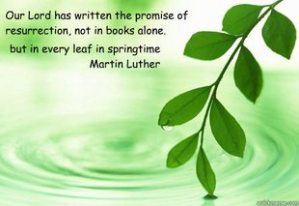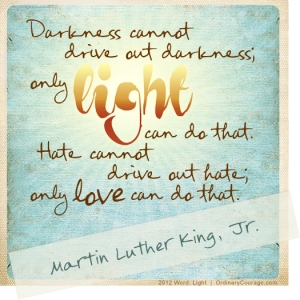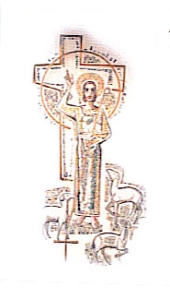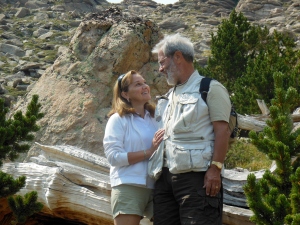Beyond Question: Do you have anything to eat?
While in their joy they were disbelieving and still wondering, [Jesus] said to them, “Have you anything here to eat?” Luke 24:41-53
Jesus dies. Jesus returns. He is alive.
This week is the anniversary of my dad’s death. If he were still alive he would, without doubt, still be an active part of my life. We would still be talking about… well, pretty much everything. He would be an audible source of encouragement and support in my everyday life.
But he’s not here physically any more. I am left with wonderful memories and things around my house that he once touched and held. Even gifts that I lovingly gave him through the years. But my dad isn’t here, and he hasn’t been for twenty-three years. My girls were little when their grandpa died. Only 5, 3, and 1.5. So they only know my dad through the stories I tell. They can’t experience him directly.
People we love die and go to heaven where we expect to meet them again for eternity. How is that different from the relationship we have with Jesus who died and is alive again?
What would happen if we really acted like Jesus is alive and with us each and every day?
What difference does Jesus make in your daily life?
For those of us who are part of churches with a liturgical calendar Sunday began Holy Week: the journey of the events that precede Jesus’ betrayal, death and resurrection. This past Sunday was Palm Sunday – the day we remember Jesus triumphal entry into Jerusalem being hailed as the Messiah. Palm branches were strewn before him; a symbol of triumph and victory. The people thought Jesus was going to be a political king and save them from the Romans.
Next we will gather on Maundy Thursday to remember the supper that Jesus shared with his disciples the night he was betrayed. “Maundy” is from the Latin “mandatum” meaning command. The “mandatum” refers to the commands of Jesus that evening to, “love one another”, “serve one another”, and “do this in remembrance of me”, as recorded in the biblical accounts of the Lord’s Supper.
Then Good Friday, the day of Jesus’ crucifixion. A somber day of remembrance. Saturday marks a vigil of waiting in many congregations. And finally on Easter Sunday, we celebrate the resurrection of our Lord!
So, in this series (Beyond Question) that we have been following throughout Lent, the passages for last week and this week feel strangely out of sequence. Again this week, the passages are post-resurrection accounts, just at a time when we are moving in the church year toward the cross. In today’s passage Jesus has returned to the disciples after he has risen from the dead. He needs to convince them both that he really died, and is alive again, and that his dying was not an accident, but part of God’s plan. Since ghosts don’t eat, Jesus shows them that he is flesh and bones when he eats the fish that is offered.
At the same time the hands and feet of Jesus show that he is scarred on our behalf. Jesus did not overcome death and the evil of the world with force and might, but with love that transcends understanding. There is a wonderful line in a Michael Card song titled, “Why”: “Why did they nail him to the cross? His love would have held him there.”
Most years during Holy Week I listen to both Handel’s Messiah as well as Michael Card’s album, “The Life.” I love the musical movement through the life of Jesus in both. One classical and one contemporary. If you can, I encourage you to take a listen this week. Or else just listen for God’s voice in a quiet space of your life. Jesus is alive you know. And he’s still speaking. To you, and to me.
Prayer for today
Ah holy Jesus, you come to us in so many ways. Sometimes we don’t even notice or recognize you. Open our eyes to see you, our ears to hear you, our hands and feet to be your messengers, our voices to offer your word of hope to others, and our hearts to receive your love. Help us to notice signs of resurrection all around us. In your name, and for the sake of the world. Amen.






